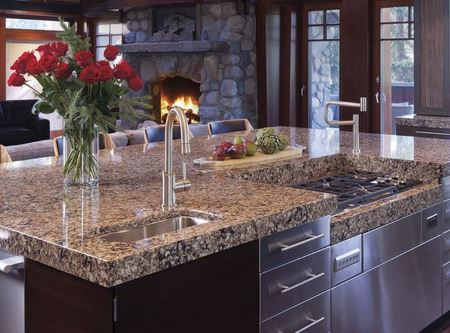 Replacing Kitchen Countertops
Replacing Kitchen Countertops
You have decided to renovate, and you want to make it a good renovation because maybe you are going to stay in your home for a long time or you are doing some renovations to a home you just purchased, but either way you want to make sure your renovation provides you the most for your money. If you are looking at replacing your kitchen counters you might be lost in the endless list of options for your new purchase. You might have heard about marble or granite or quartz counters, and find yourself wondering what it means for your counters to be made from a specific material. Well, marble has been known for a long time as a very popular material for kitchen countertops, especially in your kitchen, and there are benefits and draw backs to selecting this material as your countertop. So let’s take a look at some of the pros and cons to installing a marble counter in your new kitchen.
Pros
The look
One of the biggest reasons marble is so high on the list of materials used in kitchen countertops is how it looks: it is elegant and timeless, without question. This material displays wonderful and since it is a natural material the pattern is unique in each slab therefore your counter will not look like anyone else’s. You can also choose between hues in a variety of colours, including options in solid white and black or shades of yellow, gray, green, white, etc.
It is always cool
Marble is actually a heat resistant material, so it stands up very well in the kitchen to hot pots and pans being placed on its surface. Further it will not even yellow over time from heat and it can withstand a small spark every now on then on its surface, which is why it has also become a very popular choice for fire place finishing as well. Marble also feels cool to the touch so it is a very popular choice for baking surfaces as it will not alter the dough while it is being rolled out. So if you bake often in your kitchen this might be a great option for you.
Cons
It is porous
This material is much more porous than its counter parts, so it will absorb liquid and show stains much easier than a material like granite will. This means that any stain on the counter will go deeper into the material the longer it is left and they may be impossible to get out of left long enough. Fortunately for this there are sealants that can be used and reapplied approximately every 3 – 5 years, depending on wear. There are also professionals who can seal and re-seal it for you, depending on your level of comfort with that task. Marble can be kept looking just as great as the day it was installed, but the maintenance on it is much higher than some of its counter alternatives and if it is sealed incorrectly it is much more of a ‘when’ not an ‘if’ the counter will start to show stains.
It does not stand up in all areas of the kitchen
Marble is a natural material, but it is not the most sturdy choice for a kitchen counter. Knives, or other sharp objects, can scratch the surface quite easily and any heavy object, like a coffee mug, that falls on it can chip the marble or potentially break off an entire corner. This is one of the biggest reasons a lot of manufacturers actually do not even offer a warranty on marble counters when used for the kitchen, and some installation companies will not install the counters either because they are so fragile.
Overall marble counters look timeless and elegant in your home, but there are some serious drawbacks to having them installed. Kitchens are one of the highest traffic areas in a home so your counters are probably going to see a good amount of wear on them, and you will want something that is going to stand up over time. If you have the option and are willing to put in the work to maintain marble counters as required then this is definitely a great option for you. However if you have a really busy life with young children running around this may not be the right option for you.
- 5 Reasons to Buy Granite Kitchen Countertops
- The Pros and Cons of Marble Kitchen Countertops
- Should You Install Your New Kitchen Countertop by Yourself?
- 9 Reasons to Choose Quartz over Granite for your Kitchen Countertops
- Choosing the Right Kitchen Countertop Material
- Why You Should Buy Engineered Stone Kitchen Countertops
- What You Should Know About Replacing Your Kitchen Counters
- Which Is Better for My Kitchen Countertops: Granite or Quartz?
- Hottest Trends for Kitchen Counter Tops in 2016
- Budgeting for Certain Types of Kitchen Countertops
- Advantages and Drawbacks to a Granite Kitchen Countertop
- Modernizing Your Kitchen with New Countertops
- What You Gain from Investing in Kitchen Countertops
- The Creation Process: How Granite Kitchen Countertops Are Made
- Guidelines to Follow When Maintaining Your Kitchen Countertop
- 6 Things to Consider When Shopping for Kitchen Countertops
- A Look at Some Rare and Exotic Kitchen Countertops

